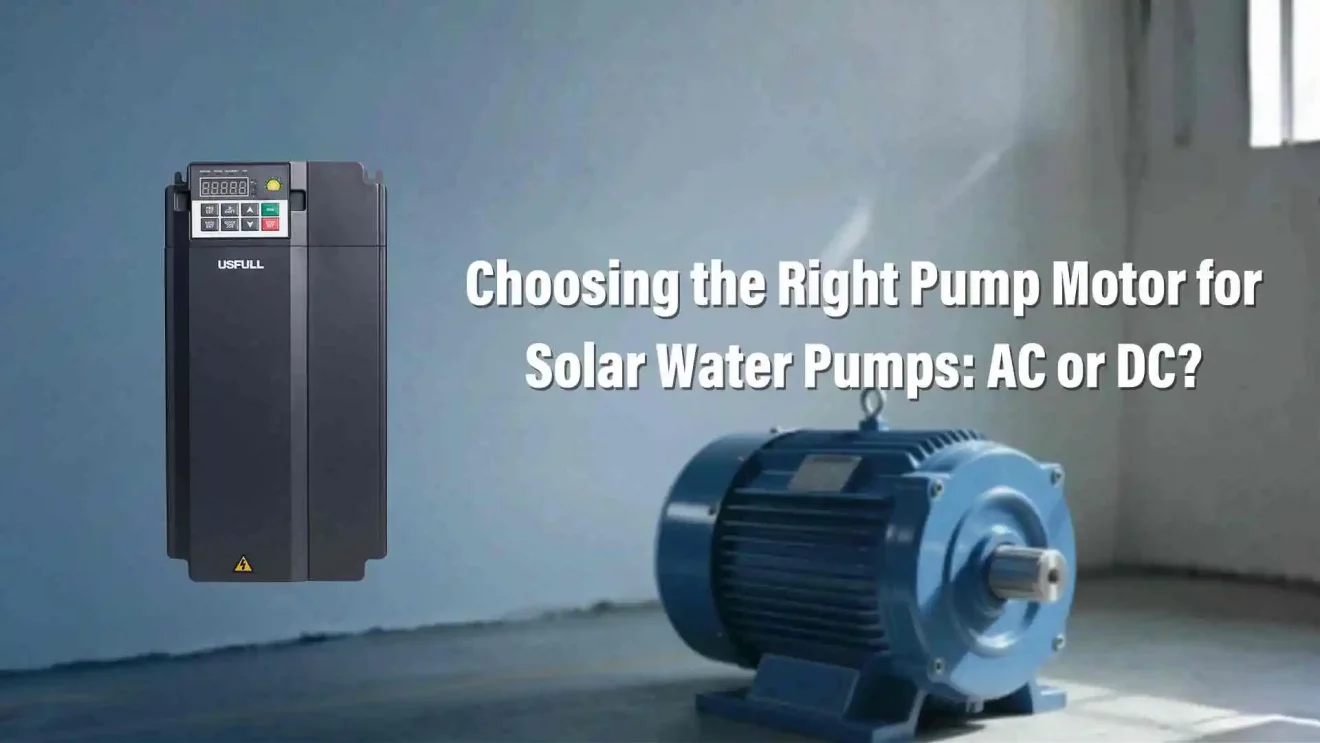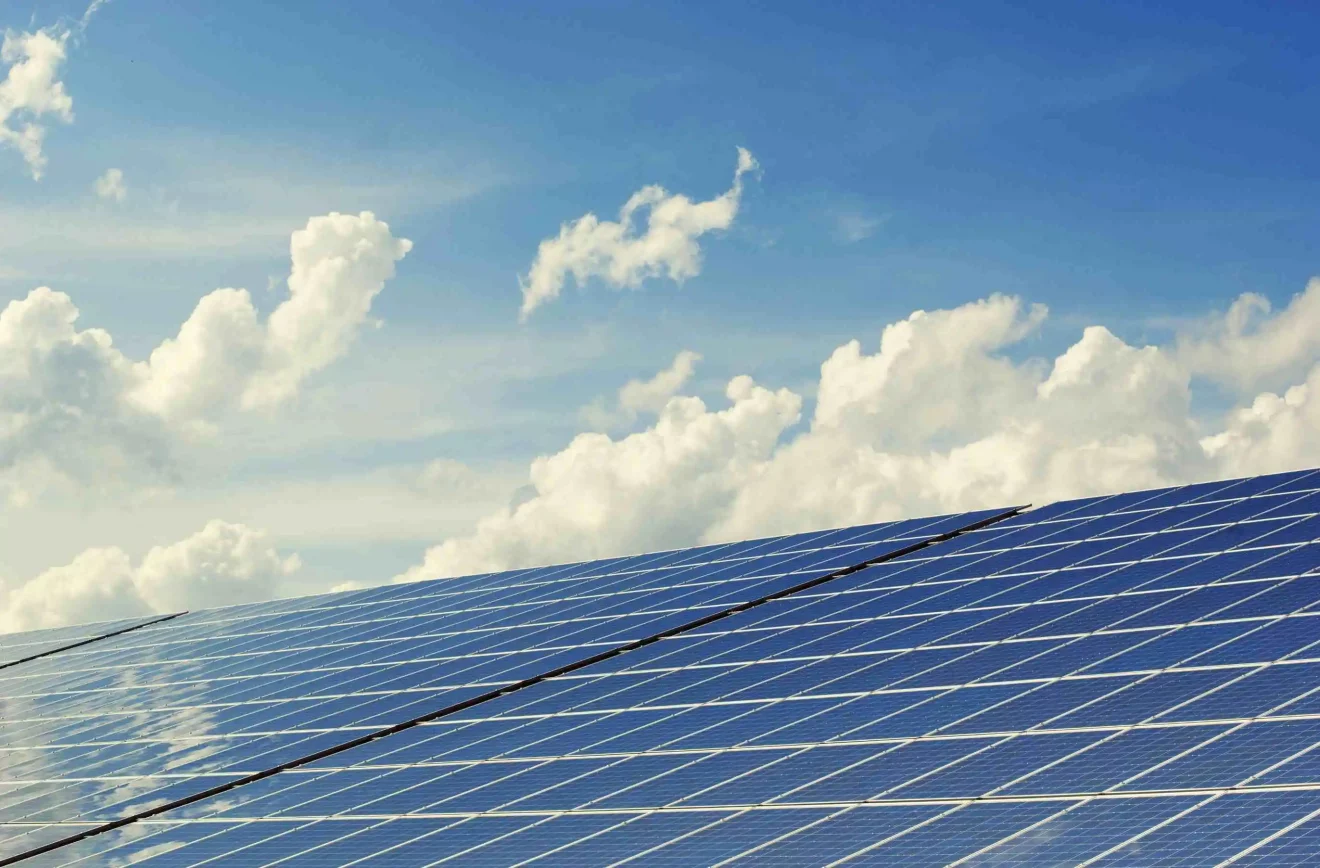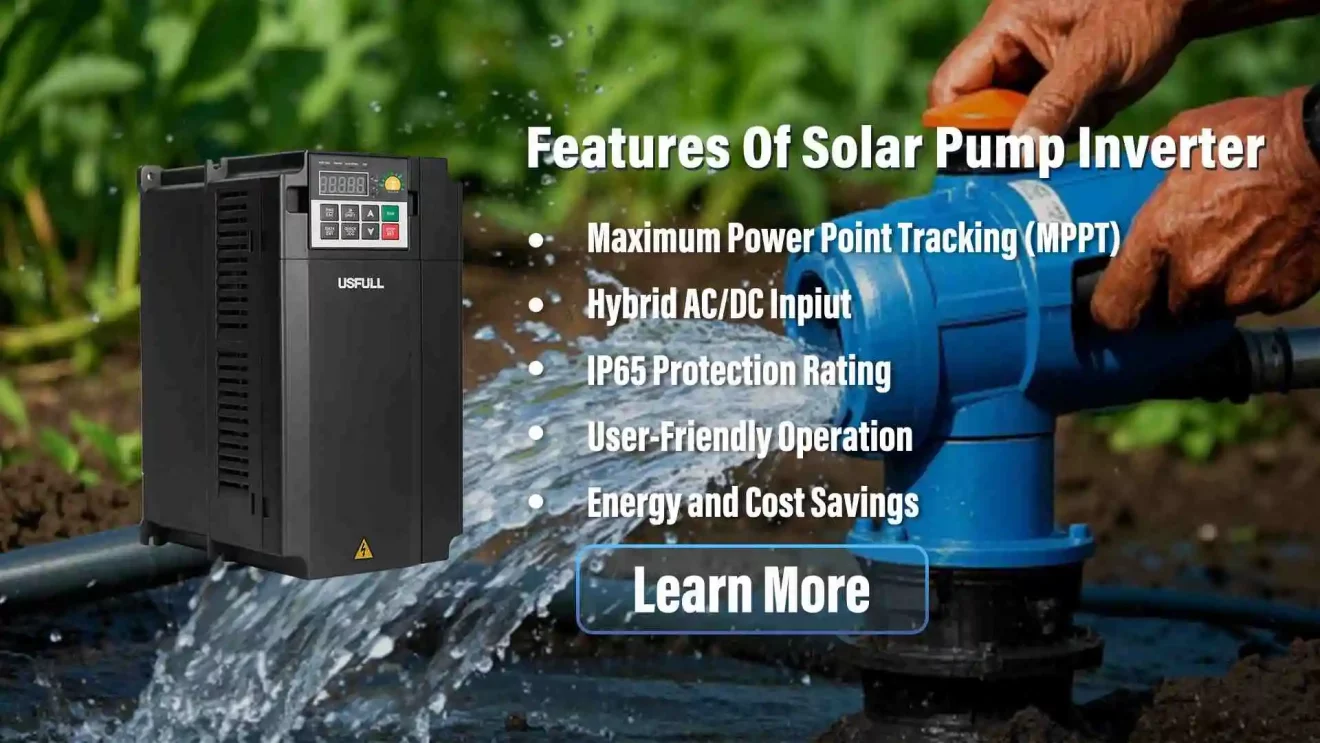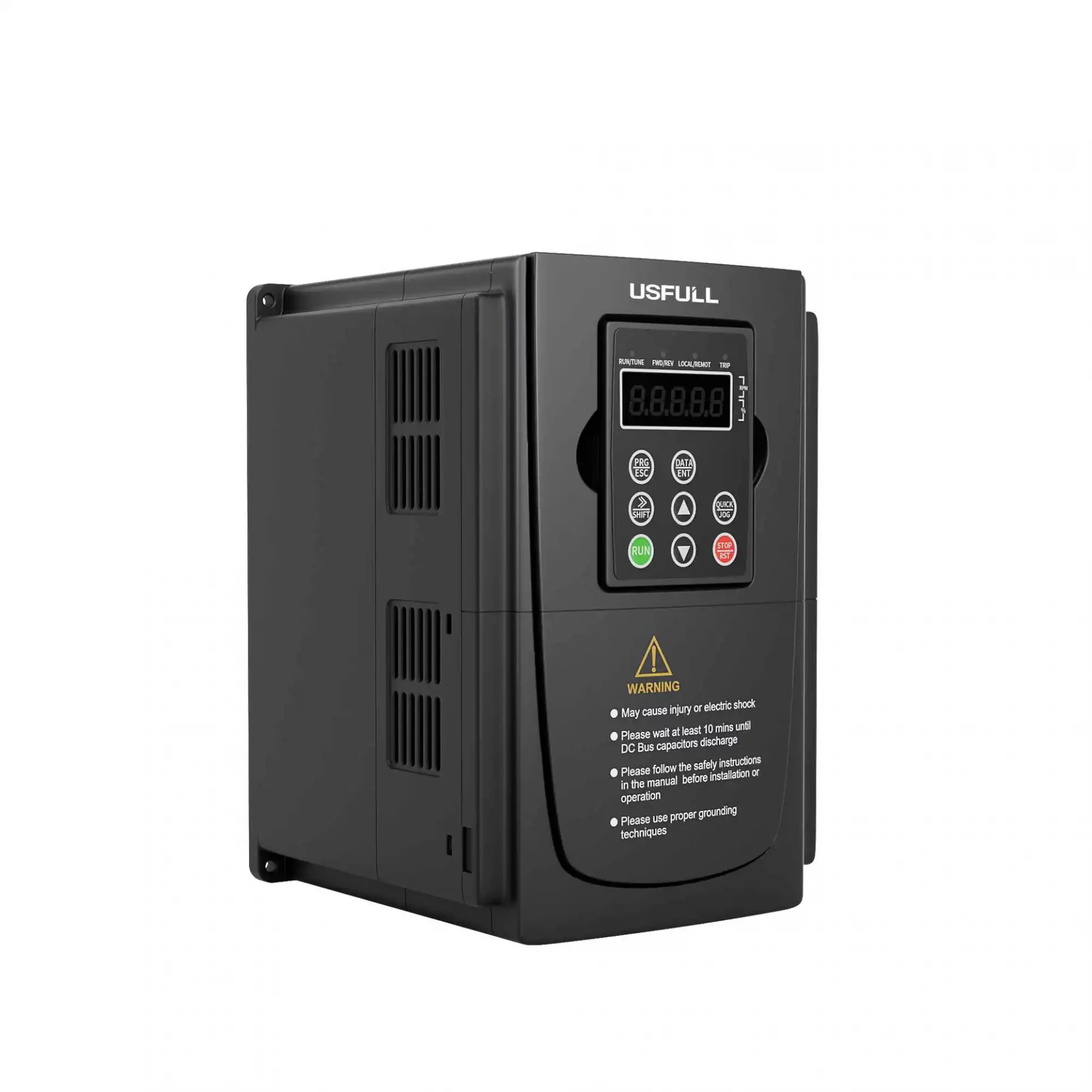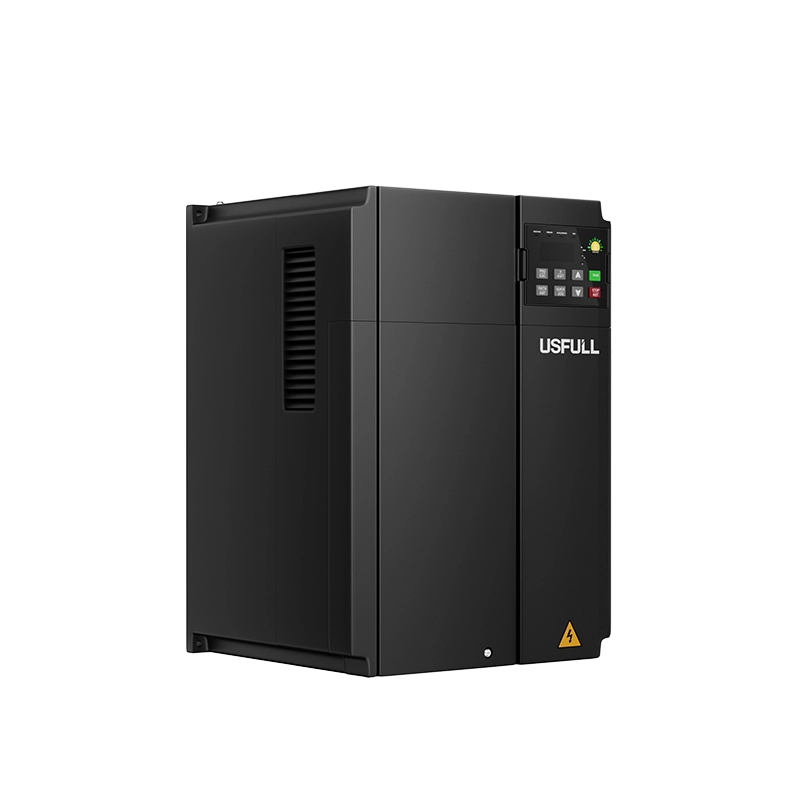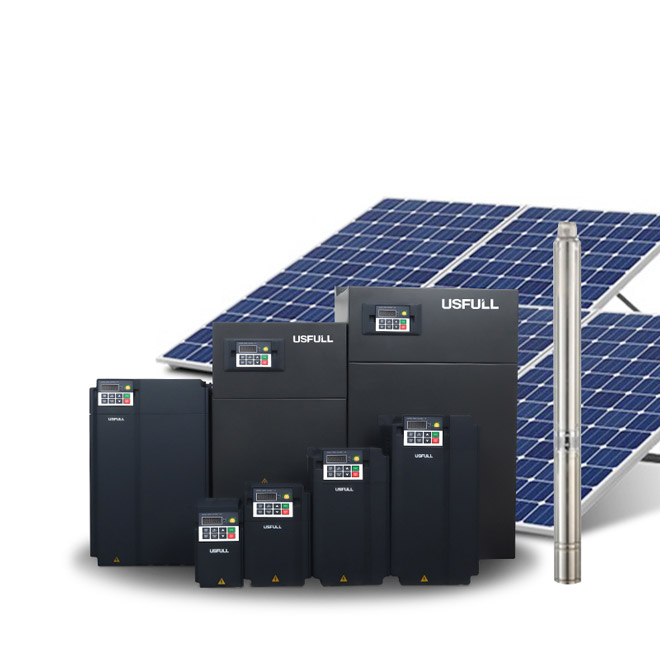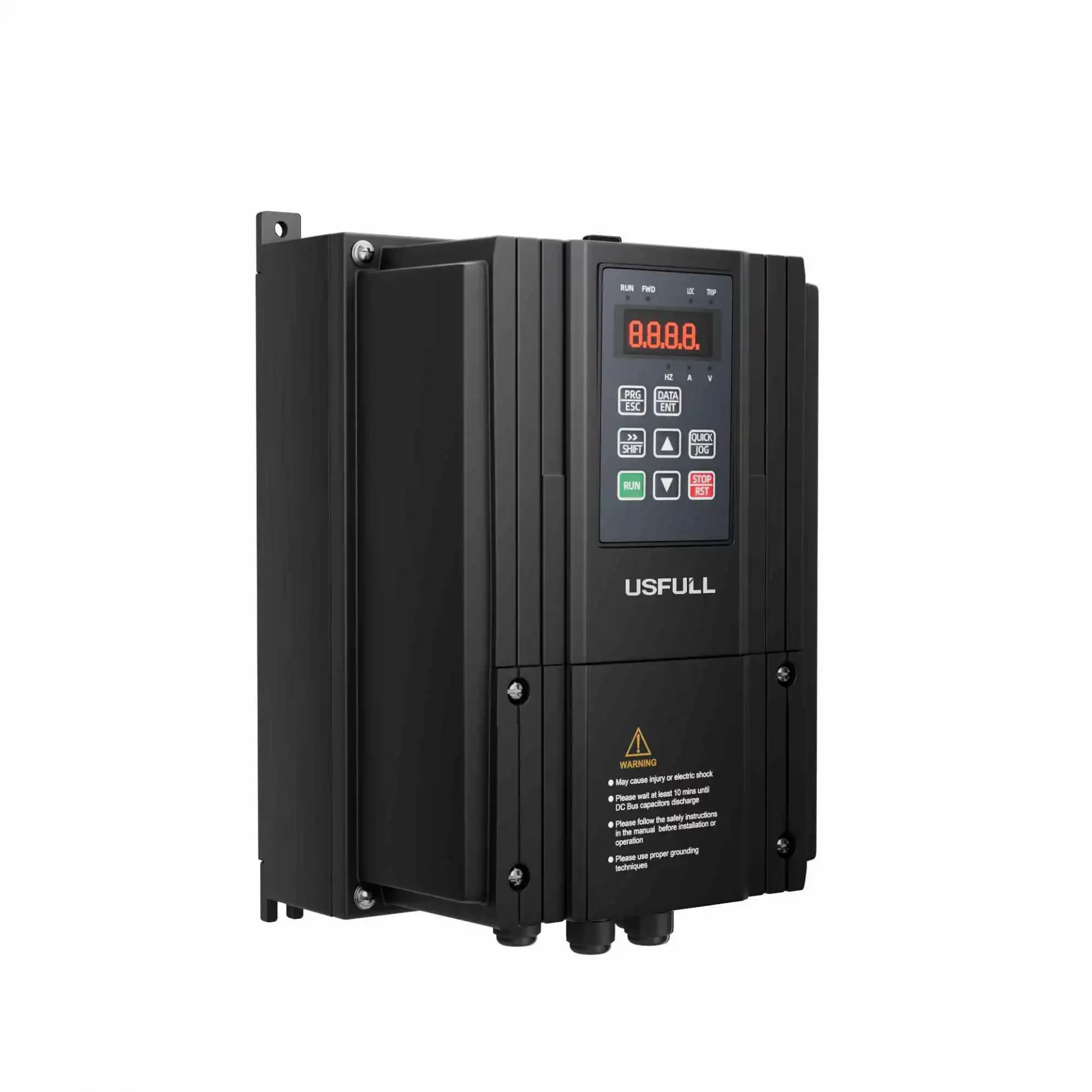Struggling to choose between AC and DC motors for your solar water pump? The wrong choice can lead to inefficiency, equipment damage, and wasted investment. Discover the best solution now.
Choosing between an AC or DC motor depends on your solar water pump system’s scale. DC motors are ideal for small systems, while AC motors perform better in large, high-power setups.
Let’s explore in depth how each motor type performs and which one is the right fit for your application.
Which Motor Is Best Suitable for Solar Water Pumping System?
Selecting the best motor for your solar water pumping system is essential for performance and efficiency. The motor directly impacts how effectively solar energy is converted into mechanical energy to drive the water pump. For systems below 3HP, DC motors shine with direct solar panel connectivity and no need for a solar pump inverter. This makes them ideal for small farms or household use.
In contrast, for larger systems, AC motors combined with a solar water pump inverter or frequency inverter are better suited due to their ability to handle high loads, offer greater control, and support various pump types.
The choice depends on factors like system size, power demand, location, and cost considerations. By understanding each motor’s advantages, you can choose a solution that enhances your water system’s long-term reliability and efficiency.
Why Consider DC Motors for Smaller Water Pumps?
DC motors are highly efficient in smaller solar pumping applications, particularly for systems under 3HP. They connect directly to solar panels, eliminating the need for a variable frequency drive or solar pump inverter, resulting in fewer energy losses and lower installation costs.
Another reason DC motors are well-suited for small systems is their compatibility with centrifugal pumps, which are more efficient and cost-effective than screw-type pumps at lower capacities. This makes DC motors ideal for household water supply, small-scale irrigation, and off-grid village projects.
DC motors also tend to have fewer components, meaning reduced maintenance and higher reliability in remote areas. These features make them the preferred option where simplicity, energy efficiency, and low upfront cost are priorities.
How Do AC Motors Excel in Larger Applications?
When your system exceeds 3HP or operates in a commercial or agricultural setting, AC motors become the optimal choice. These motors require a variable frequency inverter to operate with solar power, as solar panels generate DC electricity. However, the performance trade-off is worth it in large-scale applications.
AC motors provide higher torque and can handle heavier loads, making them ideal for deep-well submersible pumps, industrial irrigation, and high-flow applications. When paired with a solar water pump inverter, AC motors offer precise speed and torque control, leading to smoother starts and longer pump life.
Additionally, AC systems are scalable. Whether you need to run multiple pumps or integrate backup power systems, AC motors offer the flexibility and control that large installations demand.
Can Efficiency Be the Deciding Factor?
Yes, efficiency is a major deciding factor in solar pump systems. DC motors are more efficient in low-power applications because they connect directly to solar panels without intermediate conversions, resulting in lower energy loss.
However, in larger applications, AC motors equipped with variable frequency drives or frequency inverters can also achieve high efficiency. These inverters allow dynamic adjustment of motor speed based on water demand or sunlight availability, which optimizes energy use throughout the day.
The key is to balance the natural efficiency of DC systems in small setups with the intelligent control and scalability of AC systems in larger ones. Efficiency should be evaluated based on total system performance, not just motor type alone.
What About the Cost Implications?
Cost is always a central concern. For small systems, DC motors are more affordable upfront due to their simpler design and fewer components. There’s no need for a solar pump inverter, reducing installation and maintenance costs.
In contrast, AC systems typically cost more initially because they require frequency inverters and may include more complex wiring and control systems. However, the investment can be justified by the performance benefits, longer lifespan, and higher water output they offer.
In many cases, AC motors paired with a high-quality variable frequency inverter can reduce energy costs and extend pump durability, leading to better long-term ROI—especially for commercial and large-scale users.
Which Motor Type Offers More Flexibility?
Flexibility often determines system scalability and adaptability. DC motors are easy to install, operate quietly, and are ideal for fixed, small-scale use cases where conditions remain stable.
But when it comes to flexibility, AC motors take the lead. They support various pump types including submersible, centrifugal, and deep well pumps. They can be integrated into hybrid systems, connected with backup generators, or expanded as water demand grows.
The use of solar water pump inverters or variable frequency drives in AC systems also allows for precise motor control, automatic start/stop functions, and fault detection—enhancing the intelligence of your solar pumping solution.

